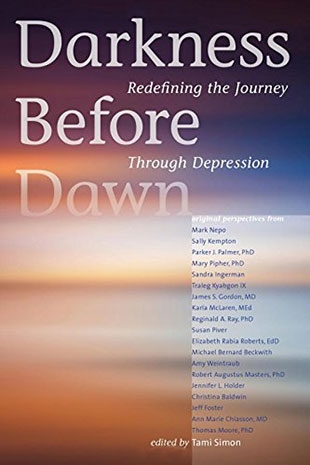"Crying ought not to be something we outgrow. Deeply felt tears can be profoundly healing – at any age. When we weep, we open the heart, ease the belly, quiet the mind, soften the body. It is a loosening up and deep cleansing, a washing-out not just of psychic debris but also – at least to some degree – of biochemical waste. The composition of emotional tears is different than that of tears that result from cutting onions or from an irritant in our eyes. Emotionally shed tears contain more toxins (much like sweat does) – thereby helping cleanse the body – but also contain leucine enkephalin, an opiate. So such tears both cleanse and ease us.
"Crying keeps us from drying out. It is easy to slip into aridity, hardening ourselves against the painful or hurtful aspects of life. We may find a certain safety in such ossification, greening our deserts of abstraction with oases of distraction, but still sadness stirs in us. We can put a lid on it or keep it in our darkest recesses, but still it arises, calling for our attention, our care, our recognition. The more we suppress crying, the shallower our lives become.
"The most painful part of crying is right before its onset. As soon as our tears are flowing and our throat is open, we hurt less, unless we're fighting and tightening up against our undammed tears. Even if waves of deeper hurt arrive once we've begun weeping – as when the details of a betrayal freshly seize us – the pain pulses through us with less obstruction than before our crying started. There is hurt, but it is the hurt of contracted tissues expanding and stretching from the pressure of what's seeking to flow through us; the more we resist it, the more it hurts. When we don't resist it, the sheer pain of it subsides fairly quickly.
"Each deep loss crucifies our attachment
Our ribcage unable to hold all the ache
It is not our heart that cracks
But its ossified shield – its bulletproof glass
A guardian from a much younger time
Crumbling to less than dust
As all constructions must"
